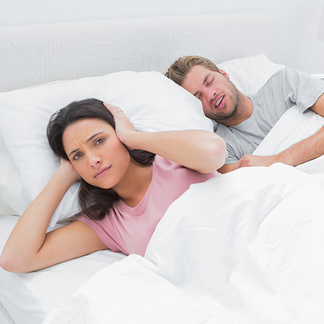Snoring Prevention
While snoring is a common problem for many people, it can also be a sign of other major health complications. It is estimated that more than 80 million people in North America snore while sleeping, which not only affects the quality of sleep of the person snoring, but also the quality of sleep of their loved ones and other family members. Luckily, there is a way to treat chronic snoring.
What causes snoring?
Snoring can be the result of several factors. Typically, snoring is caused by the relaxing of the muscles and soft tissues in the throat and mouth, making the air passage smaller. The decrease in space through the airway makes it harder for each breath to get through, and when it does get through, it moves over the soft tissues in the mouth and throat and causes a vibration that results in the snoring sound. Other causes of snoring may include:
- Excess body weight
- Alcohol consumption
- Certain sleep aides or sedatives
- Obstructive Sleep Apnea (OSA)
If I snore, does that mean I have sleep apnea?
Not necessarily, but many people that snore do have sleep apnea. An evaluation with a sleep physician is necessary to determine if you have "primary snoring" which can be the precursor to sleep apnea. As with many medical conditions, snoring can worsen over time and become sleep apnea where the air is more seriously cut off. (Also, note that some people who do have sleep apnea do not snore at all.)
Will Oral Appliance Therapy help my snoring?
If you snore at night, then an oral appliance may represent a solution and a better night's sleep! The appliance is a specially designed dental device that gently helps keep the lower jaw, or mandible, in a forward position, increasing the space between the airway passage and helping you breathe better so you can get a full, quiet night's sleep. It is not different than an oral appliance therapy for sleep apnea, but please note that medical insurance will not cover oral appliance therapy for a patient who has not been diagnosed with sleep apnea.


 Website Powered by Sesame 24-7™
Website Powered by Sesame 24-7™